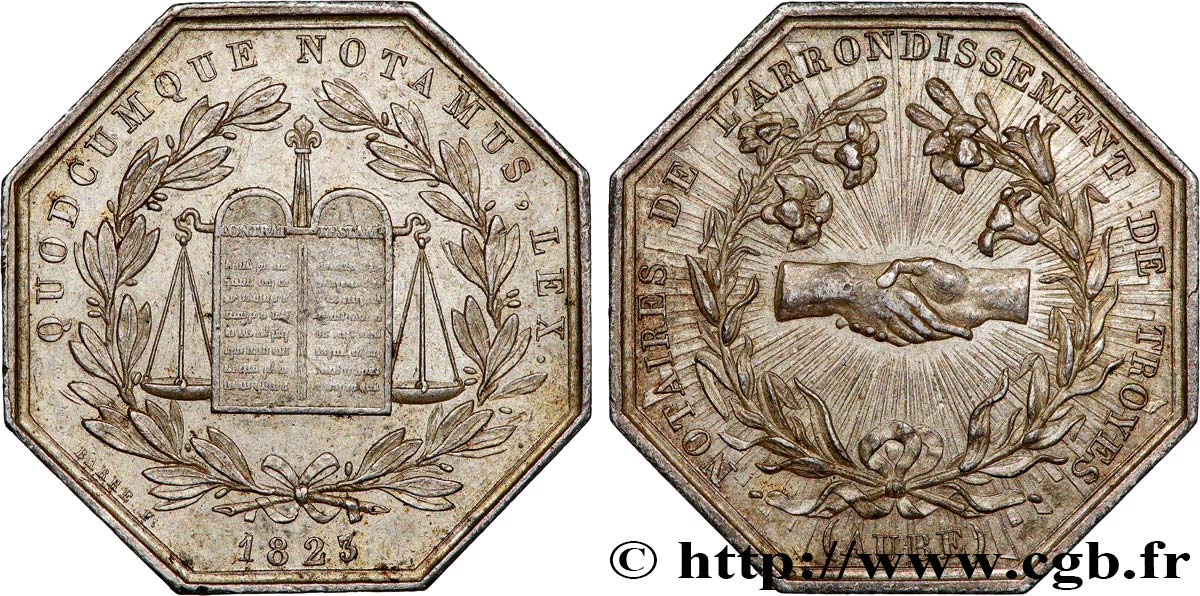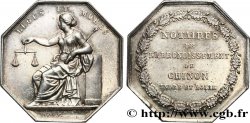E-auction 606-580947 - fjt_811532 - 19TH CENTURY NOTARIES (SOLICITORS AND ATTORNEYS) Notaires de Troyes 1823
You must signin and be an approved bidder to bid, LOGIN TO BID. Accounts are subject to approval and the approval process takes place within 48 hours. Do not wait until the day a sale closes to register. Clicking on « bid » constitutes acceptance of the terms of use of cgb.fr private e-auctions.
Bids must be placed in whole Euro amounts only. The sale will start closing at the time stated on the item description; any bids received at the site after the closing time will not be executed. Transmission times may vary and bids could be rejected if you wait until the last second. For further information ckeck the E-auctions F.A.Q.
NO BUYER'S FEE.
NO BUYER'S FEE.
| Estimate : | 90 € |
| Price : | 29 € |
| Maximum bid : | 30 € |
| End of the sale : | 25 November 2024 20:21:20 |
| bidders : | 6 bidders |
Type : Notaires de Troyes
Date: 1823
Metal : silver
Diameter : 30 mm
Orientation dies : 12 h.
Weight : 12,13 g.
Catalogue references :
Obverse
Obverse legend : QUODCUMQUE NOTAMUS LEX. 1823.
Obverse description : Tables de la loi et balance dans une couronne de deux branches de laurier attachées par un ruban. Signé : Barre F.
Reverse
Reverse legend : NOTAIRES DE L'ARROND. DE TROYES (AUBE).
Reverse description : Deux mains étreintes rayonnantes dans une couronne de deux tiges de lis attachées par un ruban.
Reverse translation : Est Loi ce que nous consignons.
Commentary
La devise "Lex est quodcumque notamus" est une création du père Ménestrier en 1686 pour les secrétaires du roi qui ne s'en sont jamais servi. L'invention fut reprise par les notaires de Paris puis ensuite par les notaires de Province. C’est la première fois que nous présentons à la vente cette référence.








 Report a mistake
Report a mistake Print the page
Print the page Share my selection
Share my selection Ask a question
Ask a question Consign / sell
Consign / sell
 Full data
Full data









